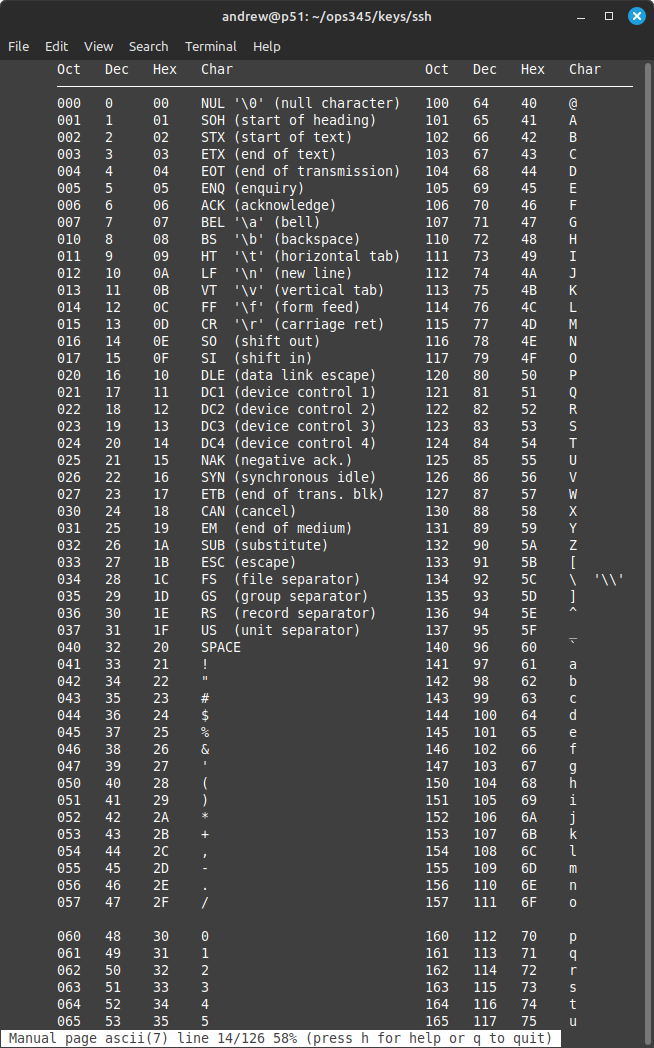OPS145 Lab 6 Newversion: Difference between revisions
No edit summary |
No edit summary |
||
| Line 6: | Line 6: | ||
There are only so many keys of the keyboard, and most of them are used to input human-readable characters. That means some of those characters will necessarily have multiple meanings. We will look at several such characters in this lab. | There are only so many keys of the keyboard, and most of them are used to input human-readable characters. That means some of those characters will necessarily have multiple meanings. We will look at several such characters in this lab. | ||
Here's most of the ASCII table (as much as I could fit on my screen). Note that most of the characters in this table are familiar to you, but some (especially the first 32) are probably brand new to you. You can see this table easily by running '''man ascii''' | Here's most of the ASCII table (as much as I could fit on my screen). Note that most of the characters in this table are familiar to you, but some (especially the first 32) are probably brand new to you. You can see this table easily by running '''man ascii''': | ||
[[File:LongerManAscii.png|center]] | |||
== . and .. == | |||
Coming from the Windows world you might be used to the concepts of "filename" and "extension". If you're not too familiar with that: you should configure your windows to always show file extensions (it doesn't by default). | |||
For example if you have a picture called | |||
= Special characters = | = Special characters = | ||
Revision as of 13:31, 24 February 2024
Special characters in the shell
The terminal you've been using this whole time in the course is running an application called the shell. Specifically the bash shell.
This application (bash) has been written to interpret input from the user as some sort of a command; or as an argument; or as data. It's a very powerful application with many abilities, but almost all the user input comes from the keyboard.
There are only so many keys of the keyboard, and most of them are used to input human-readable characters. That means some of those characters will necessarily have multiple meanings. We will look at several such characters in this lab.
Here's most of the ASCII table (as much as I could fit on my screen). Note that most of the characters in this table are familiar to you, but some (especially the first 32) are probably brand new to you. You can see this table easily by running man ascii:
. and ..
Coming from the Windows world you might be used to the concepts of "filename" and "extension". If you're not too familiar with that: you should configure your windows to always show file extensions (it doesn't by default).
For example if you have a picture called
Special characters
- wget/tar instead of firefox/archivemanager
- .
- ..
- hidden files
- * and ? wildcards
- spaces in filenames
- single quotes
- double quotes
- \
- Back-quote does something else
- Revisit ls, cat, mkdir, rm, mv, cp with spaces and special characters
- Mismatched quotes
- Quotes to work with filenames with special characters, and other quotes
